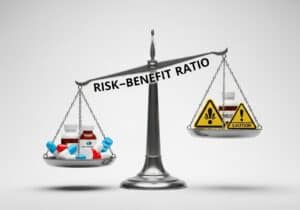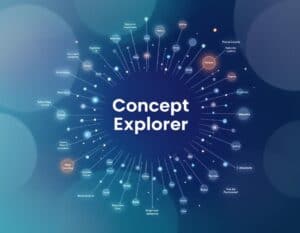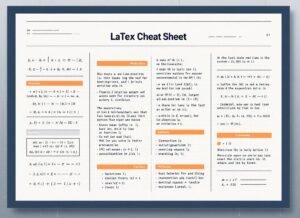
Product Design
Product design is the process of creating a new product or service or improving an existing one to fulfill user needs. While some steps may be conducted at earlier phases, the entire new product design process generally involves engineers, designers, industrial designers, product managers, and manufacturing engineers in the typical following sequence:
|
1. Define and research the user’s need |
4. Design and prototyping iterations |
7. Support the product on the market |
Select Topic:

The most complete selection of IRC channels for engineering
Internet Relay Chat offers engineering disciplines distinct advantages through its established infrastructure of highly specific, long-lived channels. These channels frequently center on particular software, hardware components, or niche technical standards, creating focused environments for information exchange and problem-solving. The platform’s reliance on plain text facilitates the unambiguous sharing of code, log data, and precise technical specifications, while its low bandwidth and processing requirements ensure accessibility across diverse operating systems and network conditions. Many technical IRC channels operate with open access, allowing broad participation and knowledge dissemination within specialized engineering communities.

Channels attendees numbers are way lower that on some forums, but much more involved and eager to help
Discord excepted, the only solution for live discussions, exchanges and support: the real-time nature of IRC interaction permits engineers to engage in direct dialogue with peers, developers, and subject matter experts, which can accelerate the resolution of technical queries and support collaborative design or troubleshooting efforts. Engineering workflows benefit from the integration of automated bots capable of delivering notifications such as software build completions, version control updates, or system alerts directly into relevant channels.
| Domain | Libera.Chat (Free and Open Source Software projects, technology, peer-directed communities) | OFTC (Open and Free Technology Community) | IRCnet (One of the oldest and largest traditional networks, general chat) | Undernet (General chat, historically one of the Big Four) | DALnet (Known for being friendly, pioneered nickname/channel registration, general chat) | EFnet (one of the original IRC networks, general chat, can be more wild west) | Freenode (historically known for free and open-source software but many changes in 2021) | Rizon (General chat, anime, various communities) | GeekShed (Technology, programming, general chat) | Snoonet (Reddit communities) |
|---|---|---|---|---|---|---|---|---|---|---|
| General Engineering | #engineering #materials-science #civil-engineering #aerospace #automotive #robotics #spacex #nasa | #openhardware #opensourcemotorcontroller #robotics-dev | #engineering | #engineering | #engineering | #engineering | #engineering | #engineering #robotics #tech | #engineering #askengineers #civilengineering #aerospace #robotics #materials | |
| Mechanical Engineering | #freecad #openscad #calculix #elmerfem #openfoam #materials-science #robotics | #openfoam-dev #freecad-dev #robotics-dev #opensim | #mechanical #cad #mech-eng | #mechanical #cad | #mechanical #cad | #mechanical #cad | #mechanical #cad #solidworks | #mechanical #3dprinting #robotics | #cad #MechanicalEngineering #materials #robotics #3Dprinting | |
| Software Development | #python #c #c++ ##rust #java #javascript #go #perl #php #haskell #clojure #git #devops #linux #wikimedia-dev | #debian #openstack #opendev #ansible #python #perl #c #golang #docker #kubernetes #yocto #openwrt #tor-dev #kata-dev #airshipit | #programming #c-lang #c++ #java #python #perl #scripting #webdesign #html #css #javascript #sql #linux #unix #bsd | #programming #c++ #java #python #perl #scripting #coding #webdev #help | #programming #scripting #coding #c++ #java #python #perl #html #javascript #web #help | #programming #c #c++ #java #python #perl #linux #bsd #unix | #kvirc #python #django #javascript #angular.js #node.js #reactjs #vuejs #ruby #rails #php #html #css #webdev #ubuntu | #programming #webdev #python #perl #c #c++ #java #javascript #ruby #php #lisp #haskell | #programming #webdev #python #linux #javascript #java #csharp #cpp #ruby #php #golang #devops #sysadmin #pdxlinux #coderzhome | #learnprogramming #programming #compsci #softwaredevelopment #webdev #javascript #python #java #csharp #cpp #rust #golang #devops #linux #opensource |
| Electronic Engineering | #electronics #kicad #fpga #riscv #arm #avr #esp32 #arduino #raspberrypi #zephyr #embedded | #openipc #openocd #linux-embedded #u-boot #coreboot #librecmc #hamradio #openhardware #rtlsdr #eda | #electronics #hamradio | #electronics #hamradio | #electronics #hamradio #circuits | #electronics #hamradio #sf2600 | #electronics #arduino #raspberrypi #hamradio | #electronics #hamradio #arduino #raspberrypi #tech | #electronics #hamradio #arduino #raspberrypi #microcontrollers #embedded #linux #techsnap | #electronics #ECE #arduino #raspberry_pi #FPGA #embedded #rtlsdr #hamradio #ElectricalEngineering |
| Quality & Manufacturing | #3dprinting #reprap #cnc #machining #homeautomation #additivemanufacturing | #openfab #3d-printing #cnc-dev | #cnc #3dprinting | #3dprinting | #3dprinting | #3dprinting | #3dprinting #reprap #cnc | #3dprinting #diy #tech | #3dprinting #cnc #machinists #homeimprovement | #3Dprinting #functionalprint #CNC #machining #manufacturing #QualityAssurance #SixSigma |
| Research & Science | #science #openscience #bioinformatics #rstats #sagemath #octave #gnuplot #physics #astronomy #chemistry #biology #neuroscience #geology #wikimedia-research | #debian-science #debian-med #hpc #bioblend #galaxyproject #julialang #opensim #petsc #fenics #openfoam #paraview #gromacs #neurodebian | #science #physics #chemistry #biology #astronomy | #science | #science | #science | #science #research #bioinformatics #physics #chemistry #biology | #science #space #astronomy #research #chemistry #biology | #science #research #space #astronomy #physics #chemistry #biology #geeks | #askscience #science #research #bioinformatics #datascience #cogsci #neuro #physics #chemistry #biology #space #astronomy #nasa |
| Education | #linux-teaching #foss-education #python-edu #scratch #sugarlabs #kicad-edu #freecad-edu #wikimedia-edu #arduino-education #raspberrypi-education #coderdojo #hackerspaces | #debian-edu #openedx #foss-in-academia #kiwix #kolibri #gnome-edu #kde-edu | #linuxforkids #programminghelp | #learnprogramming | #helpdesk | #learn | #learnprogramming #learnpython #foss-teach #linux101 | #programminghelp #linuxhelp #webdevhelp | #learnprogramming #linux #python #webdev #sysadmin #techsnap #geekshed | #learnprogramming #compsci #datascience #engineeringstudents #cscareerquestions |
| AI Engineering | #ai #machinelearning #nlp #computervision #deeplearning #tensorflow #pytorch #scikitlearn #jupyter #openai #huggingface #stable-diffusion #llm | #opennn #automl #mlops #kubeflow #openvino #onnx #tvm #mlir #jax #ai-dev | #ai #neuralnetworks #machinelearning | #ai | #ai | #ai | #ai #machine-learning #tensorflow #pytorch #deeplearning #nlp | #ai #machinelearning #neuralnetworks #datascience | #ai #machinelearning #datascience #neuralnetworks #deeplearning #python | #artificialintelligence #MachineLearning #datascience #deeplearning #neuralnetworks #computervision #LanguageTechnology #openai #pytorch #tensorflow #LocalLLaMA #StableDiffusion |
| Mathematics & Statistics | #math #mathematics #sagemath #maxima #gap #coq #lean #proofassistants #rstats #statistics #probability | #math #julialang #r-project #scipy #sympy #pari-gp #singular #debian-science | #math #mathematics #statistics | #math #statistics | #math #statistics | #math #statistics | #math #mathematics #statistics #calculus #algebra | #math #mathematics #statistics | #math #mathematics #calculus #algebra #statistics #r | #mathematics #statistics #math #learnmath #logic #rstats |
- Pro tip #1: for a first test, use our online free tool to access IRC networks without installing an IRC Client software (which is still recommended on the long term for efficiency).
- Pro tip #2: be sure to read our small 101 tutorial on IRC commands and safety tips.
Select Category:

The most complete selection of IRC channels for engineering
Internet Relay Chat offers engineering disciplines distinct advantages through its established infrastructure of highly specific, long-lived channels. These channels frequently center on particular software, hardware components, or niche technical standards, creating focused environments for information exchange and problem-solving. The platform’s reliance on plain text facilitates the unambiguous sharing of code, log data, and precise technical specifications, while its low bandwidth and processing requirements ensure accessibility across diverse operating systems and network conditions. Many technical IRC channels operate with open access, allowing broad participation and knowledge dissemination within specialized engineering communities.

Channels attendees numbers are way lower that on some forums, but much more involved and eager to help
Discord excepted, the only solution for live discussions, exchanges and support: the real-time nature of IRC interaction permits engineers to engage in direct dialogue with peers, developers, and subject matter experts, which can accelerate the resolution of technical queries and support collaborative design or troubleshooting efforts. Engineering workflows benefit from the integration of automated bots capable of delivering notifications such as software build completions, version control updates, or system alerts directly into relevant channels.
| Domain | Libera.Chat (Free and Open Source Software projects, technology, peer-directed communities) | OFTC (Open and Free Technology Community) | IRCnet (One of the oldest and largest traditional networks, general chat) | Undernet (General chat, historically one of the Big Four) | DALnet (Known for being friendly, pioneered nickname/channel registration, general chat) | EFnet (one of the original IRC networks, general chat, can be more wild west) | Freenode (historically known for free and open-source software but many changes in 2021) | Rizon (General chat, anime, various communities) | GeekShed (Technology, programming, general chat) | Snoonet (Reddit communities) |
|---|---|---|---|---|---|---|---|---|---|---|
| General Engineering | #engineering #materials-science #civil-engineering #aerospace #automotive #robotics #spacex #nasa | #openhardware #opensourcemotorcontroller #robotics-dev | #engineering | #engineering | #engineering | #engineering | #engineering | #engineering #robotics #tech | #engineering #askengineers #civilengineering #aerospace #robotics #materials | |
| Mechanical Engineering | #freecad #openscad #calculix #elmerfem #openfoam #materials-science #robotics | #openfoam-dev #freecad-dev #robotics-dev #opensim | #mechanical #cad #mech-eng | #mechanical #cad | #mechanical #cad | #mechanical #cad | #mechanical #cad #solidworks | #mechanical #3dprinting #robotics | #cad #MechanicalEngineering #materials #robotics #3Dprinting | |
| Software Development | #python #c #c++ ##rust #java #javascript #go #perl #php #haskell #clojure #git #devops #linux #wikimedia-dev | #debian #openstack #opendev #ansible #python #perl #c #golang #docker #kubernetes #yocto #openwrt #tor-dev #kata-dev #airshipit | #programming #c-lang #c++ #java #python #perl #scripting #webdesign #html #css #javascript #sql #linux #unix #bsd | #programming #c++ #java #python #perl #scripting #coding #webdev #help | #programming #scripting #coding #c++ #java #python #perl #html #javascript #web #help | #programming #c #c++ #java #python #perl #linux #bsd #unix | #kvirc #python #django #javascript #angular.js #node.js #reactjs #vuejs #ruby #rails #php #html #css #webdev #ubuntu | #programming #webdev #python #perl #c #c++ #java #javascript #ruby #php #lisp #haskell | #programming #webdev #python #linux #javascript #java #csharp #cpp #ruby #php #golang #devops #sysadmin #pdxlinux #coderzhome | #learnprogramming #programming #compsci #softwaredevelopment #webdev #javascript #python #java #csharp #cpp #rust #golang #devops #linux #opensource |
| Electronic Engineering | #electronics #kicad #fpga #riscv #arm #avr #esp32 #arduino #raspberrypi #zephyr #embedded | #openipc #openocd #linux-embedded #u-boot #coreboot #librecmc #hamradio #openhardware #rtlsdr #eda | #electronics #hamradio | #electronics #hamradio | #electronics #hamradio #circuits | #electronics #hamradio #sf2600 | #electronics #arduino #raspberrypi #hamradio | #electronics #hamradio #arduino #raspberrypi #tech | #electronics #hamradio #arduino #raspberrypi #microcontrollers #embedded #linux #techsnap | #electronics #ECE #arduino #raspberry_pi #FPGA #embedded #rtlsdr #hamradio #ElectricalEngineering |
| Quality & Manufacturing | #3dprinting #reprap #cnc #machining #homeautomation #additivemanufacturing | #openfab #3d-printing #cnc-dev | #cnc #3dprinting | #3dprinting | #3dprinting | #3dprinting | #3dprinting #reprap #cnc | #3dprinting #diy #tech | #3dprinting #cnc #machinists #homeimprovement | #3Dprinting #functionalprint #CNC #machining #manufacturing #QualityAssurance #SixSigma |
| Research & Science | #science #openscience #bioinformatics #rstats #sagemath #octave #gnuplot #physics #astronomy #chemistry #biology #neuroscience #geology #wikimedia-research | #debian-science #debian-med #hpc #bioblend #galaxyproject #julialang #opensim #petsc #fenics #openfoam #paraview #gromacs #neurodebian | #science #physics #chemistry #biology #astronomy | #science | #science | #science | #science #research #bioinformatics #physics #chemistry #biology | #science #space #astronomy #research #chemistry #biology | #science #research #space #astronomy #physics #chemistry #biology #geeks | #askscience #science #research #bioinformatics #datascience #cogsci #neuro #physics #chemistry #biology #space #astronomy #nasa |
| Education | #linux-teaching #foss-education #python-edu #scratch #sugarlabs #kicad-edu #freecad-edu #wikimedia-edu #arduino-education #raspberrypi-education #coderdojo #hackerspaces | #debian-edu #openedx #foss-in-academia #kiwix #kolibri #gnome-edu #kde-edu | #linuxforkids #programminghelp | #learnprogramming | #helpdesk | #learn | #learnprogramming #learnpython #foss-teach #linux101 | #programminghelp #linuxhelp #webdevhelp | #learnprogramming #linux #python #webdev #sysadmin #techsnap #geekshed | #learnprogramming #compsci #datascience #engineeringstudents #cscareerquestions |
| AI Engineering | #ai #machinelearning #nlp #computervision #deeplearning #tensorflow #pytorch #scikitlearn #jupyter #openai #huggingface #stable-diffusion #llm | #opennn #automl #mlops #kubeflow #openvino #onnx #tvm #mlir #jax #ai-dev | #ai #neuralnetworks #machinelearning | #ai | #ai | #ai | #ai #machine-learning #tensorflow #pytorch #deeplearning #nlp | #ai #machinelearning #neuralnetworks #datascience | #ai #machinelearning #datascience #neuralnetworks #deeplearning #python | #artificialintelligence #MachineLearning #datascience #deeplearning #neuralnetworks #computervision #LanguageTechnology #openai #pytorch #tensorflow #LocalLLaMA #StableDiffusion |
| Mathematics & Statistics | #math #mathematics #sagemath #maxima #gap #coq #lean #proofassistants #rstats #statistics #probability | #math #julialang #r-project #scipy #sympy #pari-gp #singular #debian-science | #math #mathematics #statistics | #math #statistics | #math #statistics | #math #statistics | #math #mathematics #statistics #calculus #algebra | #math #mathematics #statistics | #math #mathematics #calculus #algebra #statistics #r | #mathematics #statistics #math #learnmath #logic #rstats |
- Pro tip #1: for a first test, use our online free tool to access IRC networks without installing an IRC Client software (which is still recommended on the long term for efficiency).
- Pro tip #2: be sure to read our small 101 tutorial on IRC commands and safety tips.








